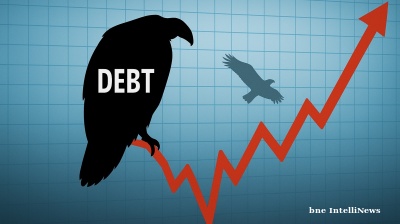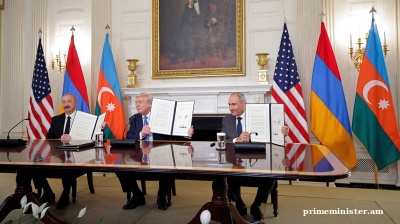Azerbaijan’s Olympic team did not receive a welcome-home ceremony after failing to secure a gold medal in Tokyo. It was Azerbaijan’s worst medal placing since the national team debuted at the 1996 Atlanta Olympics.
The 44-member team brought home seven medals this year: three silver and four bronze. By comparison, Azerbaijan’s 56 athletes earned 18 medals in Rio de Janeiro in 2016.
The team got off to a bad start. On the first day, eight of 10 contestants lost and left the tournament. After the judo team won only one bronze, the trainer was fired and several players’ salaries were cut.
Five-time world karate champion Rafael Aghayev was perhaps most expected to win gold, but he lost in the final to Italy’s Luigi Busa.
The fact that nearly half the Azerbaijani team was foreign-born – “nationalised athletes,” as they’re known locally, given Azerbaijani passports to compete for the country – angered fans at home and abroad. Chingiz Aliyev, an Azerbaijani who coaches karate in Russia’s Tuva Republic, told local outlet Moderator.az that it is “shameful” to send foreigners to represent the national team. The athletes hailed from countries like Cuba, Russia, and Iran.
“It is obvious that foreigners agree to represent the country only in return for money,” he added. “They are not going to fight tooth-and-nail for the Azerbaijani flag.”
Ilham Huseyn, a columnist for the opposition newspaper Azadliq, wrote that sports in Azerbaijan is dependent on foreigners “just like our economy is dependent on oil.”
Many pinned the blame on the national Olympic Committee. The results from Tokyo show that “we have gone the wrong way for many years,” sportswriter Natig Mukhtarli told local outlet Musavat.com.
“For example, a fiasco in judo was expected. Only dilettantes would have an inexperienced foreign coach, rather than trusted local coaches, oversee a national team,” he said, referring to the team’s Ukrainian mentor. “After that, the managers should have been fired, not the trainers.”
Another sports writer, Joshgun Eldaroglu, drew attention to lower government funding. Eldaroglu claimed that unlike previous years, this time Azerbaijani athletes were not promised big financial incentives, “which, for example, were a hundred thousand manats [$95,000 at the time] during the 2015 European Games held in Baku,” he told Radio Azadliq.
In the past, the Azerbaijani government used sports as a national rallying cry. But in the aftermath of the victory in the second Nagorno-Karabakh war last year, Eldaroglu believes, sport has been pushed into the shadows by the nation’s image makers.
Heydar Isayev is a journalist from Baku.
This article originally appeared on Eurasianet here.
Features
_1758174730.jpg)
Indonesia’s Raja Ampat - tourism hub or den of corruption?
In recent years, Indonesia has doubled down on promoting Raja Ampat, a remote archipelago in West Papua famed for its biodiversity, as a global eco-tourism icon.

Flood corruption scandal shakes the Philippines
The Philippines is grappling with a widespread controversy surrounding its flood control programme, with allegations of billions of pesos being siphoned off from projects meant to protect vulnerable communities.

The European Commission proposes to “creatively” tap Russia’s $300bn of frozen assets with Reparation Loans
The European Commission is floating a new idea of how to “creatively” tap Russia’s $300bn of frozen assets without the need to appropriate, which is legally questionable, by replacing the money transferred to Kyiv with EU-backed bonds.

“Yuri Gagarin” cosmodrome seeking a future in space – and tourism
Golden age of spaceport is long over, with Moscow focused on facilities in Russia. Kazakhstan, however, hopes it can find profitable niche in launching satellites.




